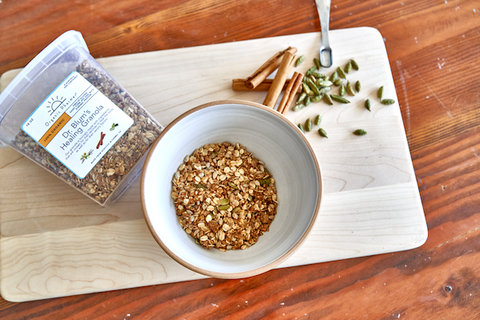
Are you getting enough fiber?
Share
What is fiber?
The many essential benefits of fiber
Struggling for ideas of how to incorporate more fiber?
Here are some tips.

Order Gluten Free Fiber Filled Foods
Soups are also a great way to get your daily dose of fiber. Cooking essentially does some of the work of digestion for you, by starting to break down foods before they even enter the body. It’s for this reason, as well as because soups are full of hydrating liquids, that we often reach for soup when we’re sick or not feeling our best. When you don’t have the time, or don’t feel like making your own, try the Organic Pharmer blended soups like Curried Cauliflower or Butternut Lentil Bisque, or chunkier soups like Tunisian Tomato, French Lentil, and Tuscan White Bean, all of our soups are rich in fiber, and highly digestible.
There are many choices available to us when we are deciding what to eat, and an easy way to head in the direction of health is to incorporate more fiber into our diets. It’s good to remember that fiber is found in plants and plant-based foods, and even incorporating these foods in small amounts can drastically change our digestion in the short-term, and our metabolism in the long-term. So start increasing your fiber intake, and see how it benefits your digestion and your body as a whole.
 About Author: Stephanie is the current fulfillment director and kitchen supervisor for Organic Pharmer. She studied Neuroscience at University of California, Irvine before studying Naturopathic Medicine for 2 years at National University of Natural Medicine in Portland, Oregon. She also spent 3 years studying East Asian Medicine at the same university.
About Author: Stephanie is the current fulfillment director and kitchen supervisor for Organic Pharmer. She studied Neuroscience at University of California, Irvine before studying Naturopathic Medicine for 2 years at National University of Natural Medicine in Portland, Oregon. She also spent 3 years studying East Asian Medicine at the same university.